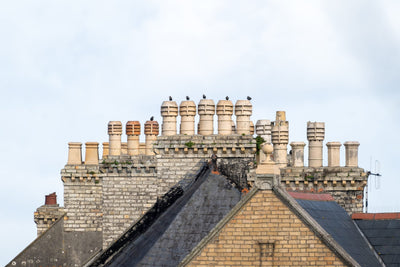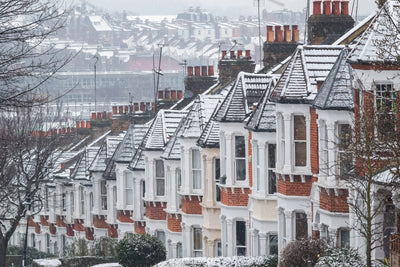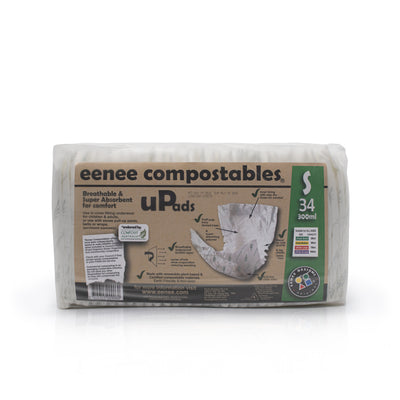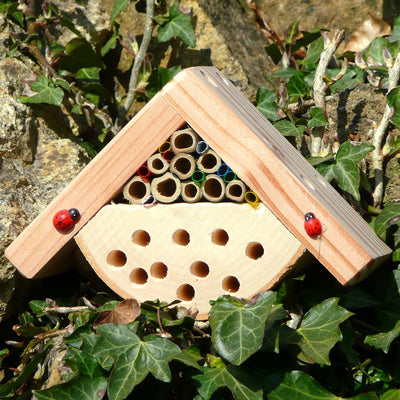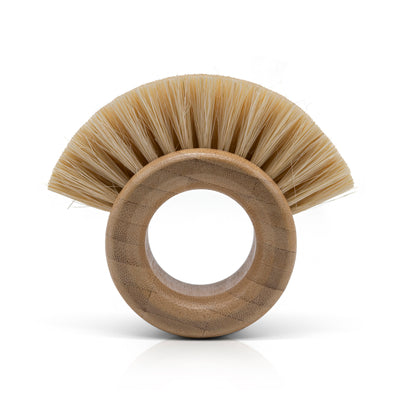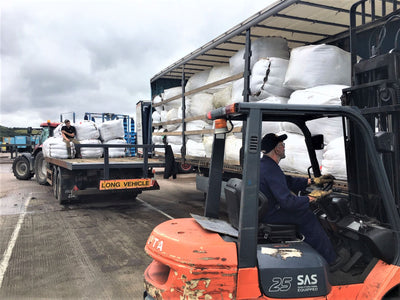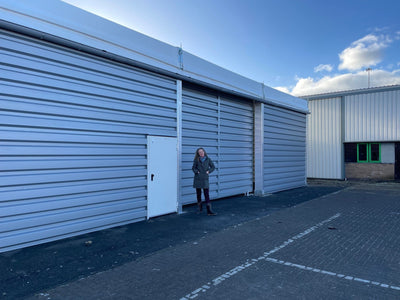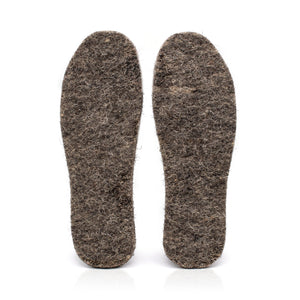We often get asked about wind noise in the chimney, and how to prevent it. Noisy chimneys can be very annoying, and when you are tucked up snug and warm in your home you don’t want to be reminded of how ferocious the weather is outside!
What causes wind noise in a chimney?

You could think of your chimney as a giant musical instrument. The wind blowing across it or down the chimney is causing it to make all kinds of noise. Just like a recorder in the wrong hands – it may be an instrument but it doesn’t necessarily make music.
Sometimes wind noise is caused by wind whistling across the top of the chimney. This is the equivalent of blowing across the top of a bottle, only bigger and louder. Some customers say that it’s worse if they have a chimney cowl fitted. The small ventilation gaps act like the whistle holes in a giant recorder.
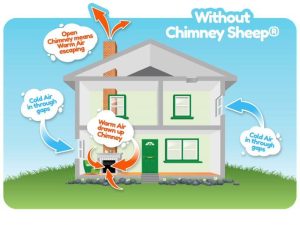
Chimney noise can also be caused by an increase in airflow up the chimney. There’s a constant flow of air up the chimney due to the stack effect. The airflow increases if it’s a taller chimney, increases more if there’s a big temperature gradient, and increases even more if there’s a strong wind blowing across the top of the chimney. So on a cold windy night when you’ve got the heating cranked up, there is going to be a tremendous rush of air travelling up the chimney, and this will exacerbate the wind noise.
You won’t just have a windy chimney either- think about how much warm air from your home you’ll be losing too!
Want to get really geeky? You can actually work out how much heat you might be losing via your chimney with our stack effect calculator.
Try our stack effect calculator

Another cause is the roaring wind blowing straight down the chimney. Fast flowing cold air rushes into your home, bouncing off the chimney walls – amplifying the sound. The wind echoes in the chimney like an ill played bassoon!
Finally, having an open chimney is like leaving the window open – you’ll be able to hear the noise from the great outdoors, only amplified!
Read more about chimney air flow
What can be done about chimney wind noise?

The simple answer is: stick a ‘Sheep’ in it! The thick layer of wool will muffle the sound. It will also cut off the flow of air that is being caused by the stack effect, diminishing the noise of roaring air as it flows up the chimney.
A Chimney Sheep® chimney draught excluder will also block out external wind noise (and other external noises such as traffic, aircraft, industrial noise and so on).
To ensure you get the correct size Chimney Sheep® that fits your chimney nice and snug you’ll need to measure your chimney. One size definitely doesn’t fit all!
Get your tape measure ready and follow our simple instructions.

Will the Chimney Sheep block all wind noise?
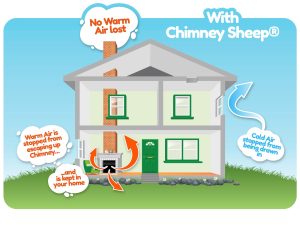
It really depends on the chimneys. We’ve fitted them in properties when it’s been really windy, with the wind roaring down the chimney, and the wind noise has stopped as soon as a Chimney Sheep® is fitted. By plugging the gap and effectively closing the opening, wind is being prevented from whistling down the chimney, air can no longer be pulled up the chimney and the sound vibrations are physically stopped.
In other situations a Chimney Sheep® chimney draught excluder will muffle the wind noise but not block it out completely.
Some customers fit a layer of Sheep Wool Insulation on top of a Chimney Sheep® to increase the amount of sound insulation, and some use a Chimney Balloon in combination with a Chimney Sheep® to reduce the impact of the noise.
Shop Chimney Sheep® chimney draught excluders
What about wind noise in wood burning stoves?
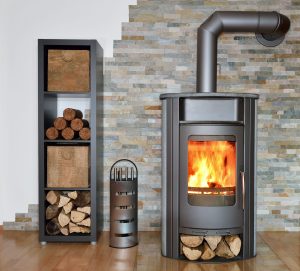
Provided the rope seal on the wood burning stove’s door is in good condition, the draughts will be sealed off. So, check that rope seal! However, sometimes there can still be a tremendous wind noise down the stove pipe, and in that circumstance we can supply specially-made mini Chimney Sheep® that fit the pipe to muffle the noise. Contact us to find out more!

